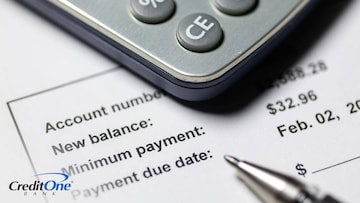If you haven’t automated your finances, you may be spending hours each month organizing billing statements, writing checks, transferring money between accounts, and scheduling payments. Paying bills manually and making deposits for savings can be time-consuming and stressful.
The good news is there’s a better way. The internet, mobile banking apps, and the ability to set up automatic payments make it easy to automate many of these tasks. Putting your finances on auto-pilot may just save you time and help ensure that your payments to creditors are on time, every time—one of the most important ways to build a positive credit history and healthy credit score.
Here’s how to get started.
1. Review Your Recurring Bills
Gather up all the bills you pay each month: mortgage/rent, car loan, utilities, phone, internet, streaming services, and anything else you pay monthly. Then make a list of irregular expenses that come up throughout the year. These are bills you can plan for but don’t pay each month, such as insurance premiums and annual subscriptions.
When your list is complete, set up automatic payments for as many of your bills as you can. Many companies have an autopay option these days, but if you come across one that doesn’t, you may be able to set up autopay directly with your bank. If not, you’ll need to continue to pay that bill manually.
2. Set Up Automatic Transfers for Savings
It’s important to set aside money for savings each month before buying groceries, going out to dinner, or escaping for a weekend getaway. If you wait until the end of the month to save what’s left over, you might not have anything to save.
If you already have accounts such as a 401(k), 529, or a high-yield savings account established for your savings goals, you can set up automatic transfers to those accounts from your checking account each month. Or, if your employer offers direct deposit and allows you to split your paycheck and deposit different amounts into different accounts, you can have money from each paycheck automatically deposited into those accounts.
Don’t have any accounts to help you save set up yet? Make a list of your long-term financial goals and resolve to begin opening the accounts you’ll need to help you achieve them. Or seek the advice of a qualified financial planner.
3. Monitor Your Accounts
Once you’ve begun to put your finances on auto-pilot, it’s important to monitor your accounts to ensure that the correct amount of money is being transferred each month.
Monitoring your accounts should also help you identify any unauthorized activity. If you’re not already signed up for them, consider registering to receive alerts from your financial institution to be notified of suspicious activity as soon as it happens.
4. Make Adjustments
It’s important to review your accounts periodically to ensure that your choices still make sense for your lifestyle and achieving your financial goals. For example, if you cancel a membership or service, you’ll want to stop automatic payments on those accounts. Or, if you get a raise and your paycheck gets bigger, you may want to increase the amount you’re putting into your 401(k) or any other accounts you’ve earmarked for savings.
The Benefits of Automating Your Finances
Investing the time upfront to automate your finances has many benefits. You’ll notice some of them right away, while others may take a little time to make their presence known. Here are a few of the main benefits you may enjoy:
1. It’s more convenient. Working toward putting your finances on auto-pilot should save you time every month. No more writing checks, making last-minute calls the night before a bill is due to pay by phone, or logging in to your online account to schedule a one-time payment in time. With autopay, it’s already scheduled and should be handled, barring technical difficulties.
2. Your payments should never be late. As busy as everyone is these days, it’s easy for things to fall through the cracks. When you automate your finances, you shouldn’t have to worry about forgetting to make a payment. As long as you maintain sufficient funds in the account from which you are making your payments, your payments shouldn’t be late, you won’t get charged late fees, and your credit may improve because your payments will be on time consistently.
3. You may achieve your financial goals faster. When you’re intentionally setting aside money every month instead of saving whatever’s left over, you have a better chance of achieving your goals. Since money is automatically deducted from every paycheck, or automatically transferred to the appropriate accounts, you won’t be tempted to spend it on things you don’t need.
4. You might earn rewards. Some companies let you set up autopay with a credit card instead of your checking account. If you use a rewards credit card and that card counts bill payments as purchases eligible to earn rewards, you could earn cash back, points, airline miles, or more just for paying your bills.
Putting bills on autopay and setting up automatic transfers for savings may take some time, but the good news is that you should only need to do it once. After you set everything up, the only times you should need to make changes are when your situation or financial logistics change. And a little legwork up front could go a long way toward helping you meet your financial goals.



